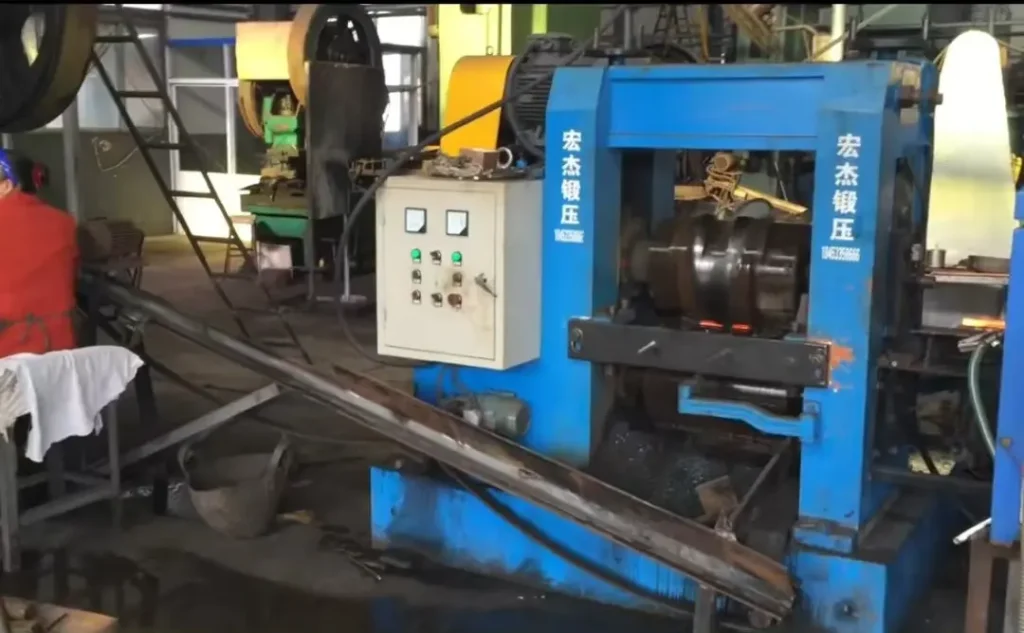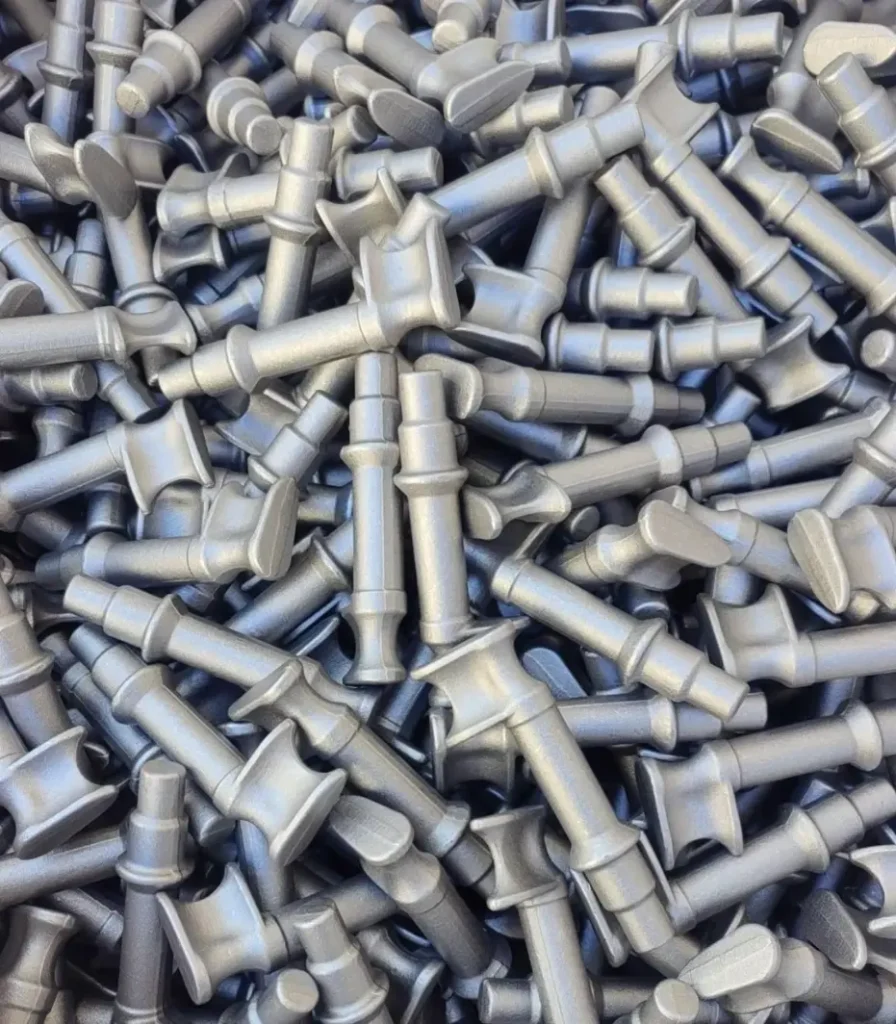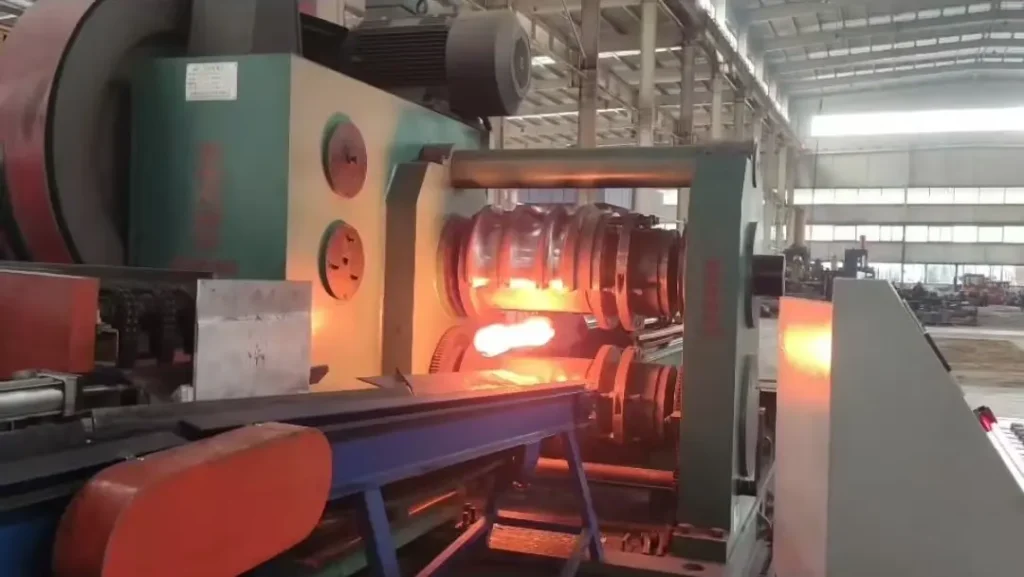High-Quality Precision Forging Services | Expert Metal Forging Solutions
In the realm of metal manufacturing, precision forging stands out as a pivotal process, delivering high-quality, durable components that meet stringent specifications. This article explores the intricacies of precision forging, including its definition, processes, and benefits, while highlighting Welleshaft as a leading global supplier and contract manufacturer of precision forgings.
Understanding Precision Forging
What is the Meaning of Precision Forging?
Precision forging refers to a specialized forging process designed to produce high-accuracy metal components. Unlike conventional forging, which may involve broader tolerances, precision forging focuses on achieving exact dimensional specifications and superior surface finishes. This process is crucial for applications requiring high reliability and performance, such as aerospace, automotive, and industrial machinery.

The Precision Forging Process
Precision Forging Process: A Detailed Overview
The precision forging process involves several key steps:
- Design and Planning:Engineers design the component with exact specifications, taking into account material properties and intended use.
- Material Selection:High-quality metal billets or blanks are chosen based on the requirements of strength, ductility, and other properties.
- Heating:The selected material is heated to a temperature that makes it malleable yet retains its strength.
- Forging:The heated material is then forged using precision molds or dies to achieve the desired shape and dimensions.
- Cooling and Finishing:Post-forging, the component is cooled and subjected to finishing processes, such as machining and surface treatment, to meet final specifications.
Types of Forging
What Are the 4 Types of Forging?
Forging processes are broadly classified into several types, each with its own applications and benefits:
- Open Die Forging:This involves compressing the metal between flat or contoured dies, allowing for significant flexibility in shape. It’s ideal for larger components but less precise than other methods.
- Closed Die Forging:Here, the metal is enclosed within a die cavity, allowing for more precise control over dimensions and surface finish. This method is commonly used for complex shapes and high-tolerance components.
- Impression Die Forging:Similar to closed die forging, but the dies are designed to create more detailed impressions in the metal. This method is used for producing components with intricate designs.
- Precision Forging:This is the most advanced form, focusing on high accuracy and tight tolerances. It often involves sophisticated machinery and techniques to achieve exact specifications.
Automation in Forging
Which Forging Process is Fully Automated and Used for Mass Production?
Automated forging processes, particularly those used for mass production, include techniques like closed die forging and precision forging. Automation enhances efficiency, consistency, and scalability. In precision forging, advanced robotic systems and computer-controlled machinery ensure that each component meets exacting standards, making it ideal for high-volume production runs.
Precision Forging vs. Closed Die Forging
What is the Difference Between Closed Die Forging and Precision Forging?
While both closed die forging and precision forging involve enclosing the metal within a die, precision forging places a greater emphasis on achieving extremely tight tolerances and superior surface finishes. Precision forging typically involves advanced technology and quality control measures to ensure that every component adheres to exact specifications. Closed die forging, on the other hand, is often used for components that require less stringent tolerances but still benefit from the precision of die enclosure.

Requirements for Precision Forging
What is Required for Precision Forging?
Achieving high-quality results in precision forging requires several critical factors:
- High-Quality Materials:Selecting the right metal with appropriate properties is crucial for achieving the desired performance and durability.
- Advanced Machinery:Precision forging demands the use of sophisticated equipment capable of delivering precise and consistent results.
- Expertise:Skilled engineers and technicians are essential for designing the forging process, selecting materials, and overseeing production to ensure quality.
- Rigorous Quality Control:Continuous monitoring and testing throughout the forging process are necessary to maintain high standards and verify that each component meets specifications.
Why Choose Welleshaft?
Welleshaft: Your Trusted Global Supplier and Contract Manufacturer
For those seeking top-notch precision forgings, Welleshaft stands out as a premier global supplier and contract manufacturer. With a reputation for excellence and innovation, Welleshaft delivers precision forged components that meet the highest standards of quality and performance.
Welleshaft’s commitment to advanced technology, skilled craftsmanship, and rigorous quality control ensures that every product they deliver is of the highest caliber. Whether you require components for aerospace, automotive, or industrial applications, Welleshaft offers the expertise and reliability you need.
How can I contact Welleshaft for more information on precision forging?
For more details on precision forging and to discuss your specific requirements, you can visit Welleshaft’s website here or reach out directly to their team of experts via their contact information provided on their site. They offer comprehensive support and solutions tailored to your needs.
Conclusion
Precision forging plays a critical role in modern manufacturing, offering unmatched accuracy and quality for a wide range of applications. By understanding the precision forging process, different forging types, and the benefits of automation, you can make informed decisions for your manufacturing needs. Partnering with a trusted supplier like Welleshaft ensures that you receive top-quality precision forgings that meet your exact specifications and performance requirements.
For more information on precision forgings and to explore how Welleshaft can support your needs, visit Welleshaft’s website or contact their team of experts today.

